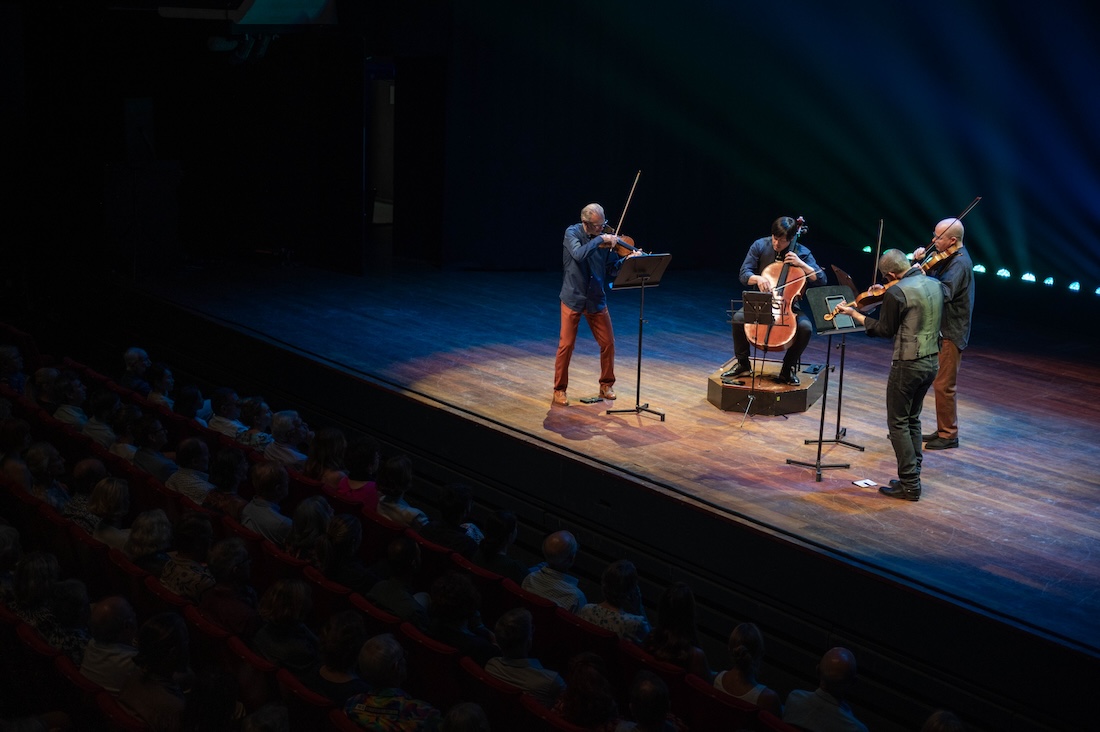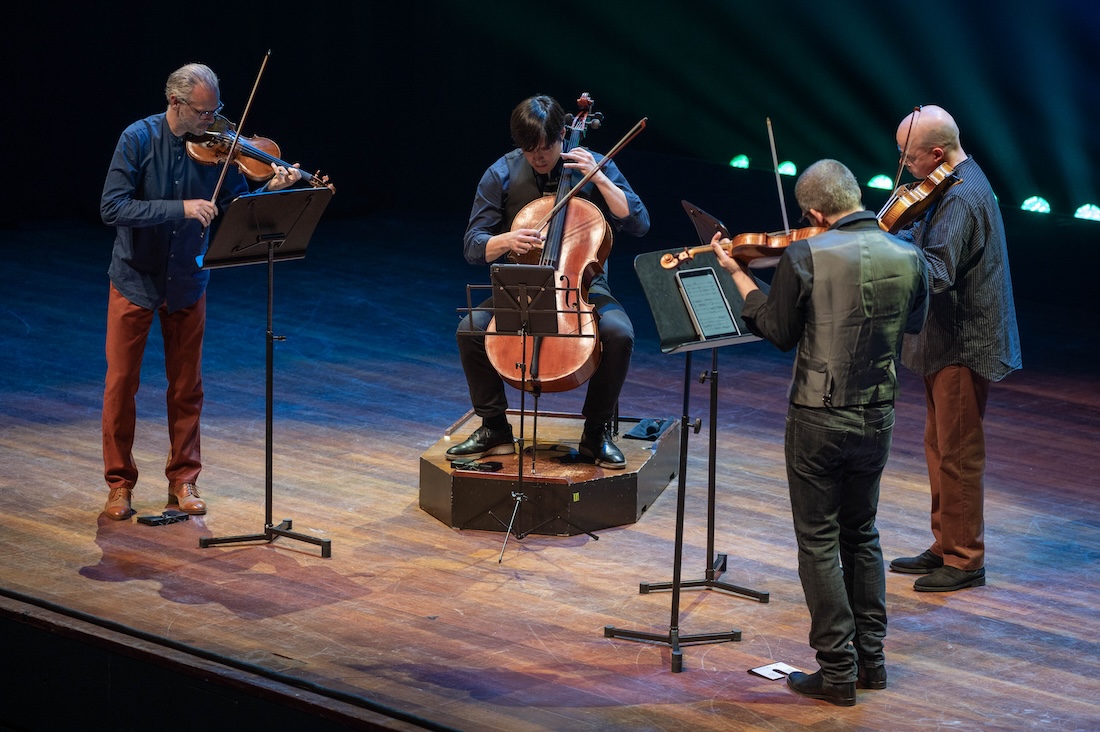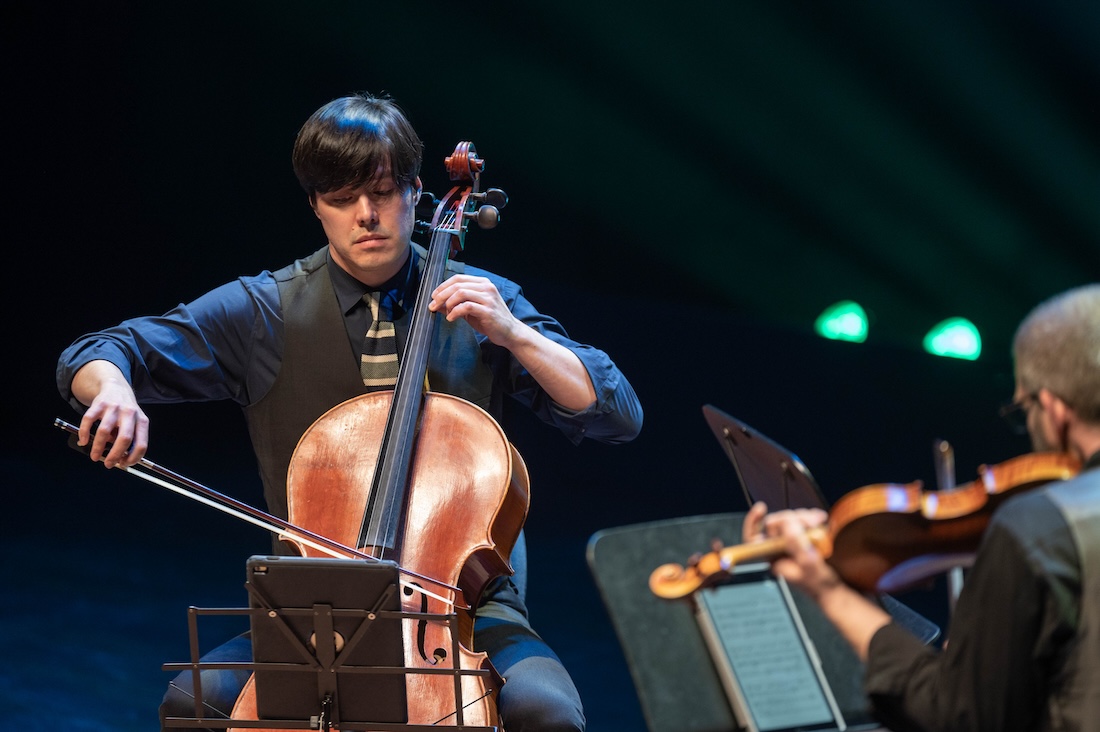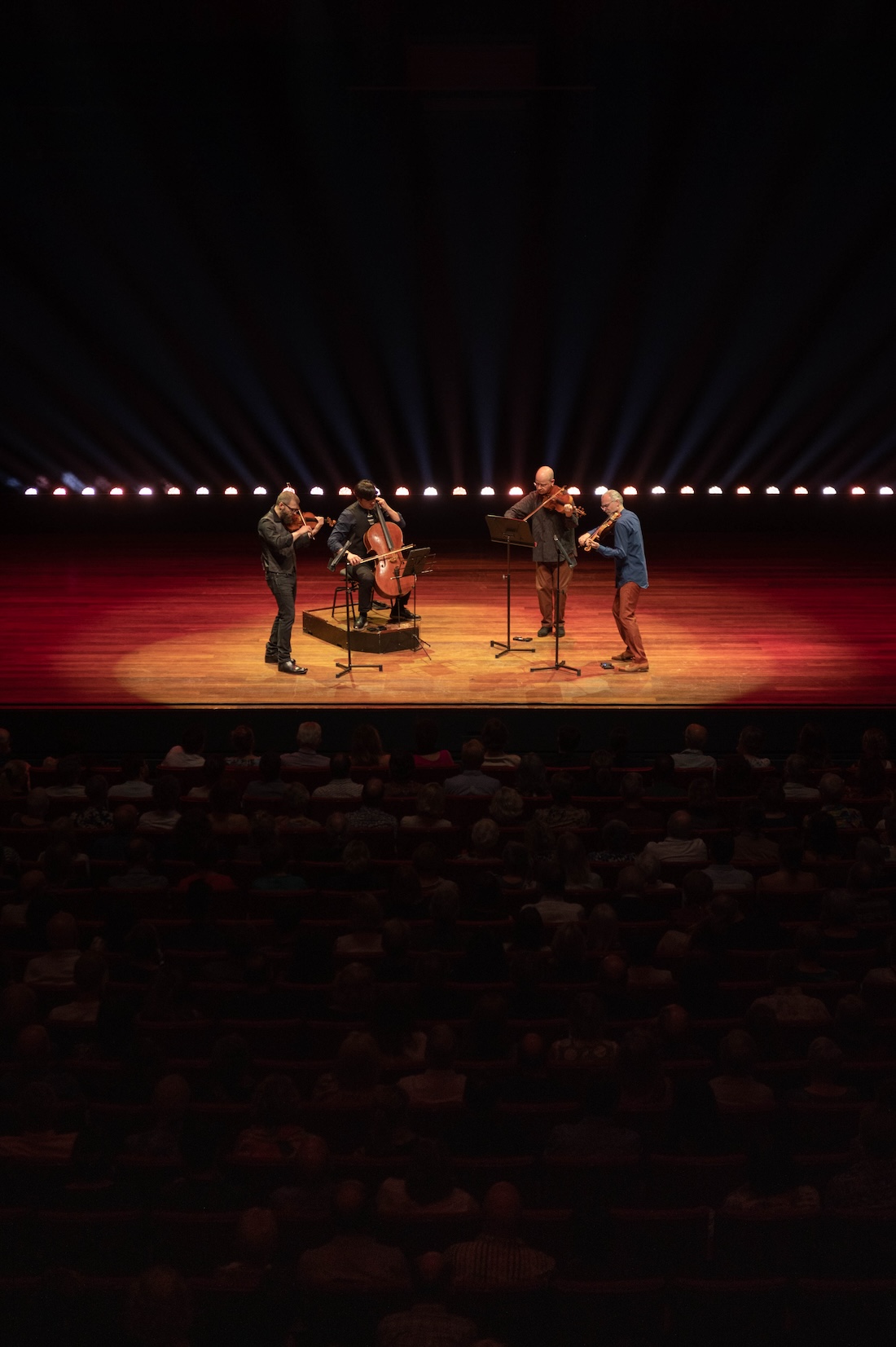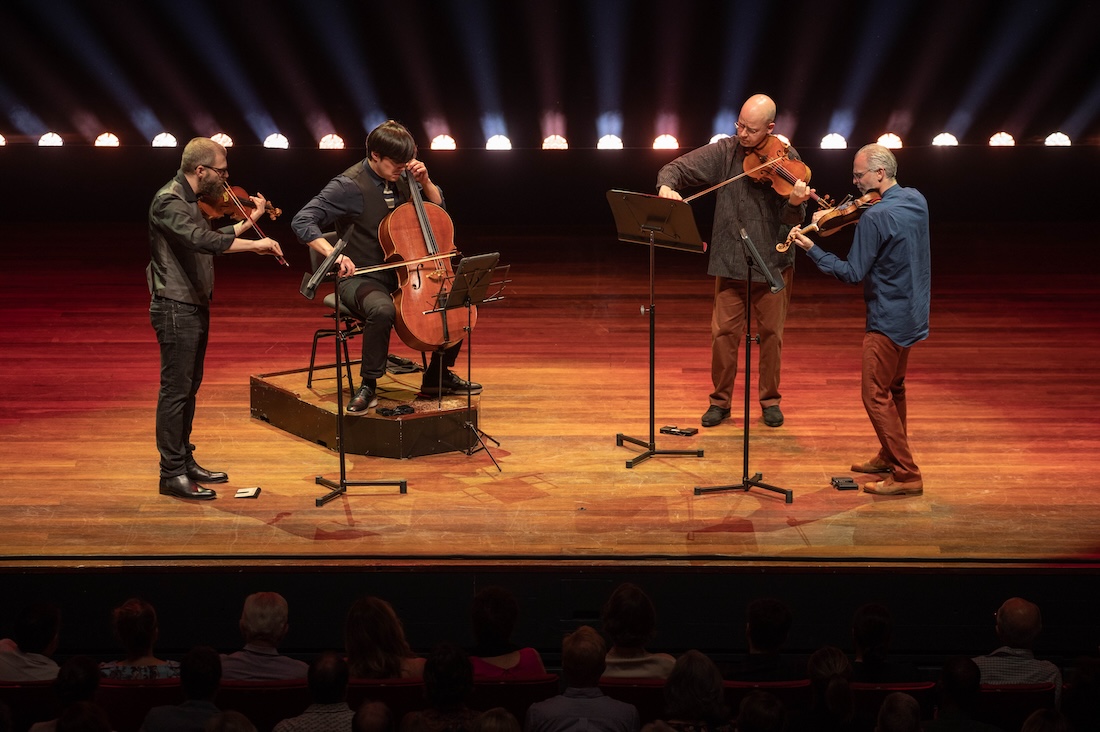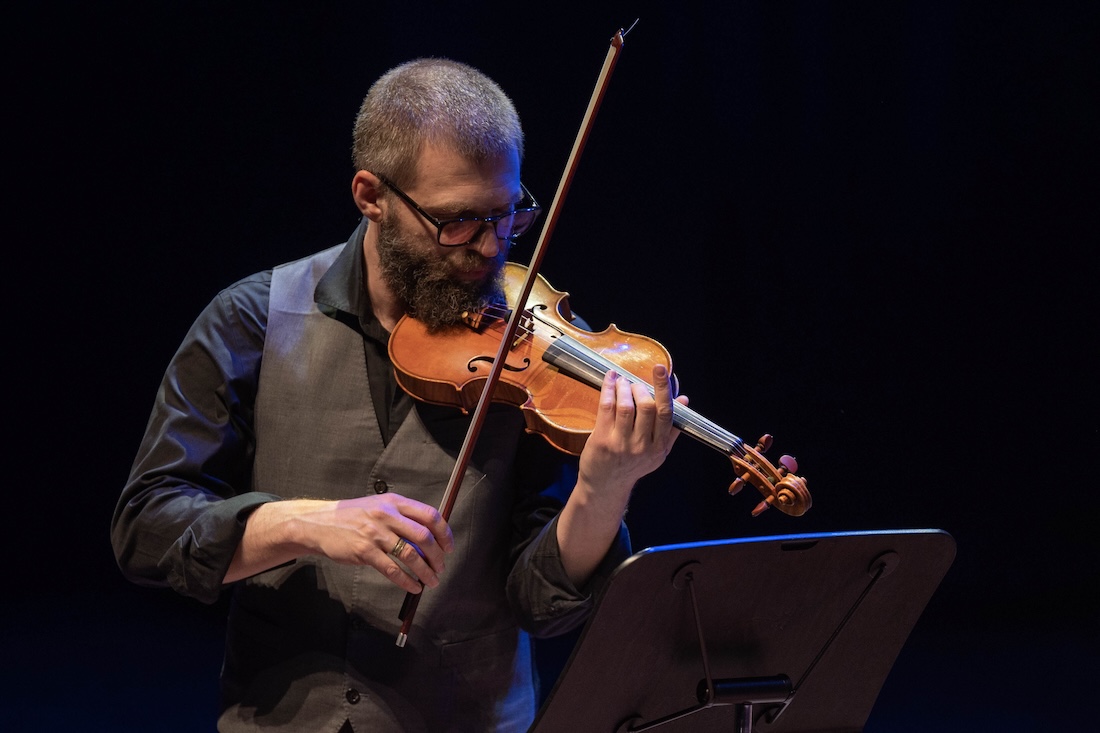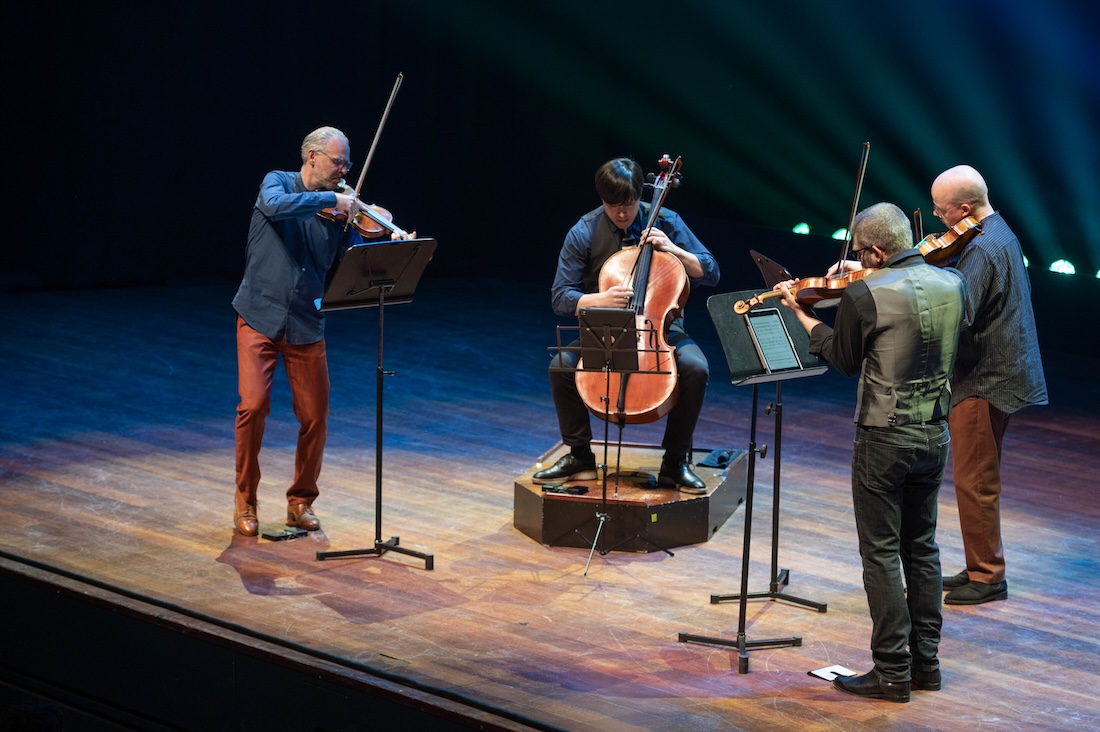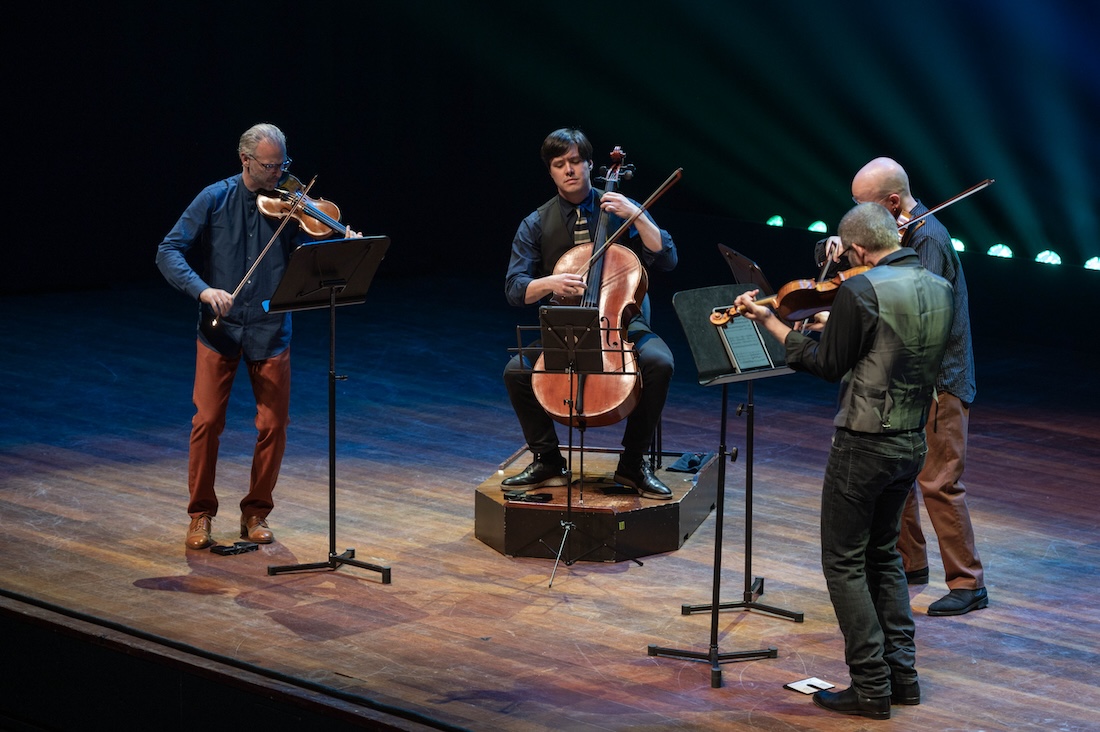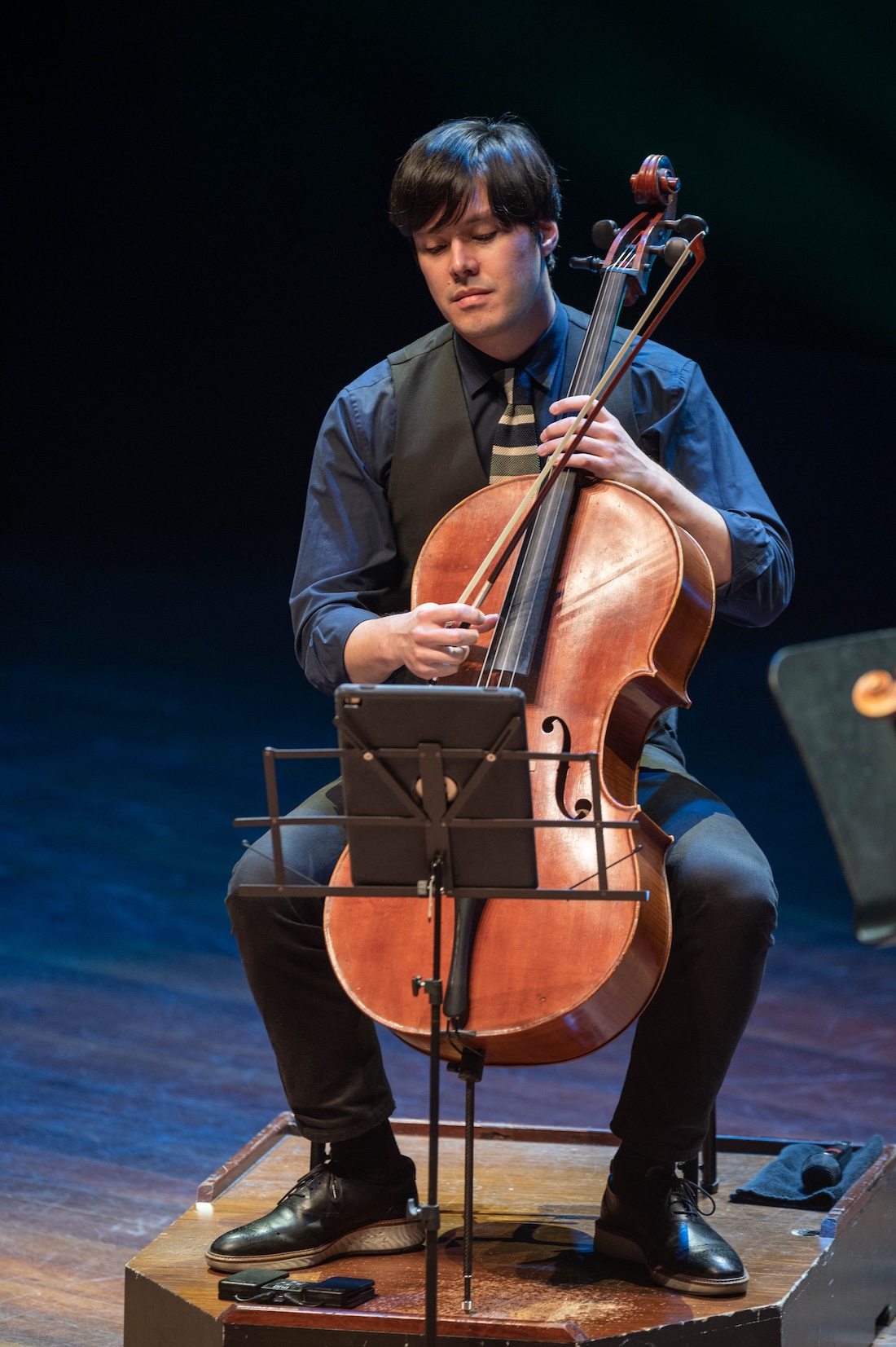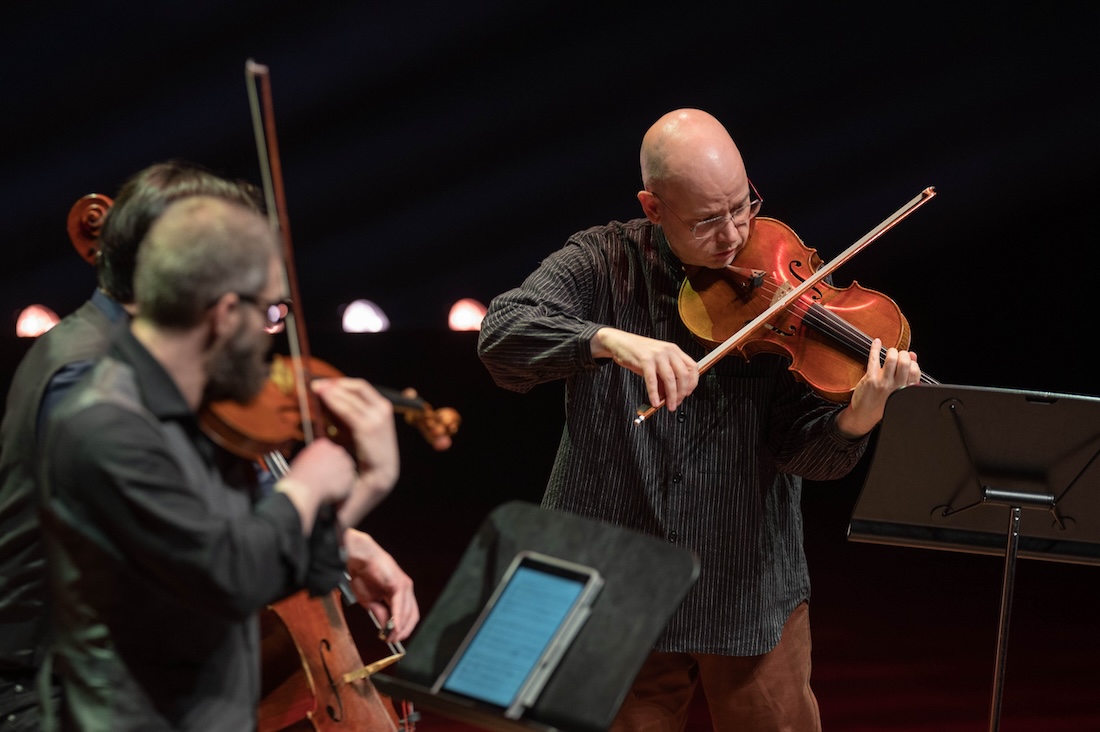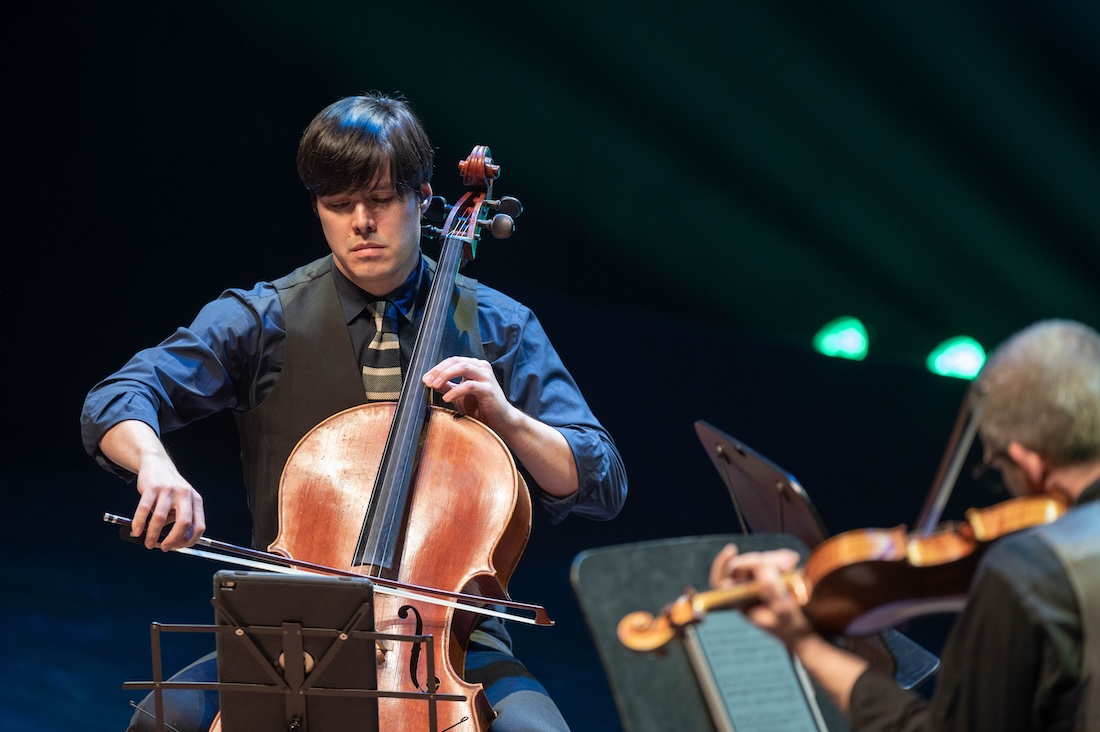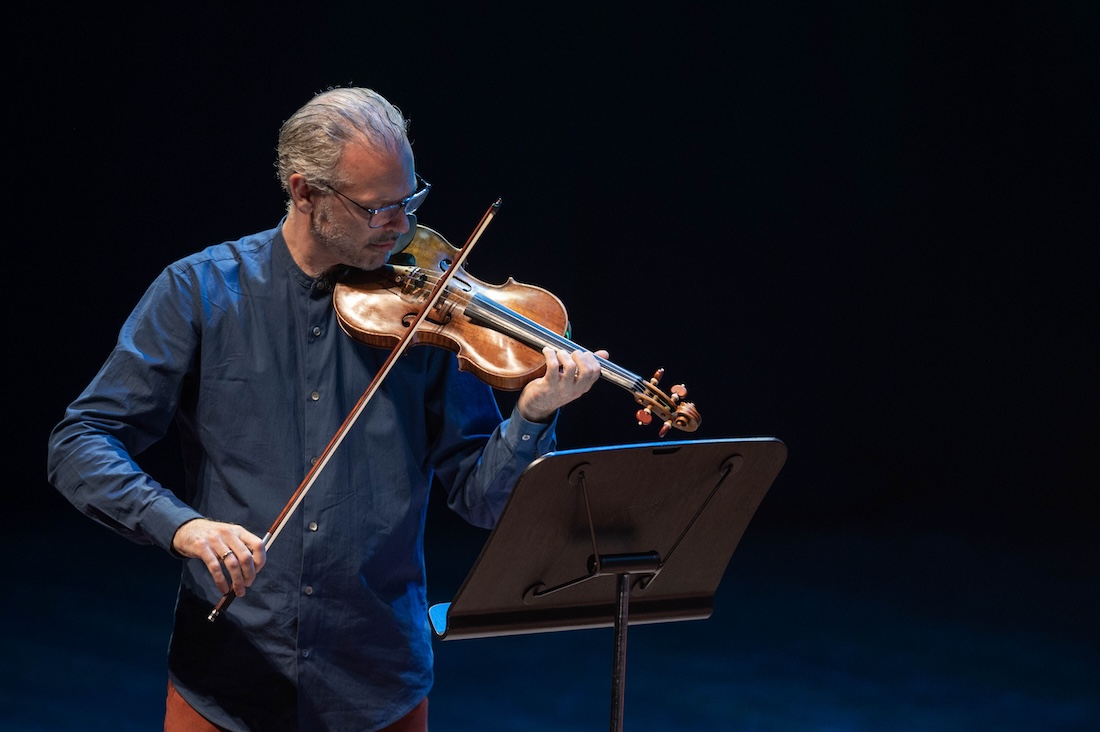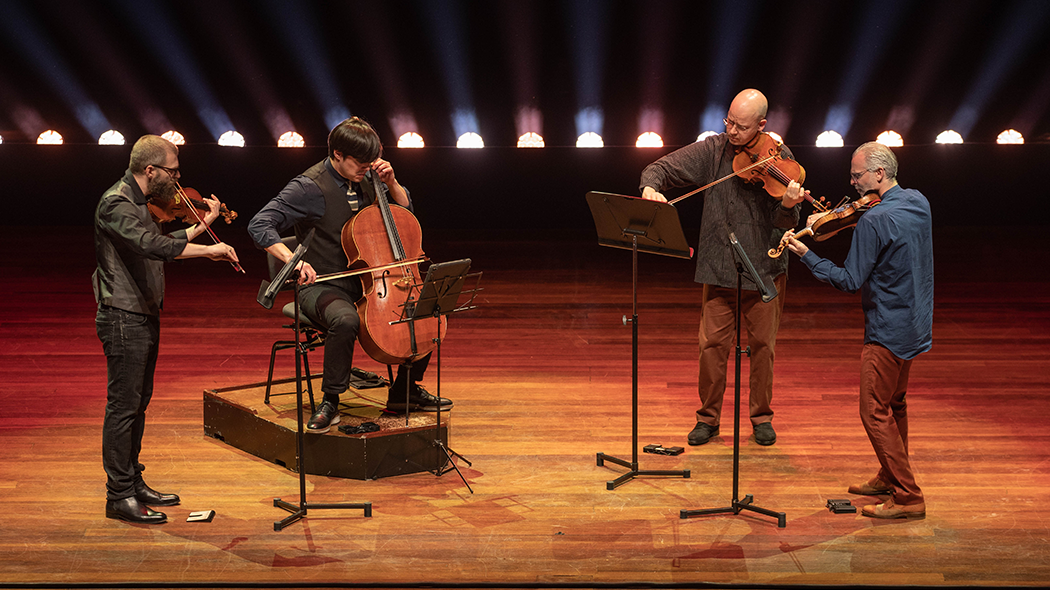
Review: Brooklyn Rider at Perth Concert Hall
Brooklyn Rider at Perth Concert Hall
Friday, March 1, 2024
Increasingly in this challenging world of ours, music can and should play a role in creating a space for collective imagination and dialogue.
These words by Nicolas Cords, violist for Brooklyn Rider, sum up perfectly the impact of the ensemble’s concert, The 4 Elements. The fourth and final Perth Festival concert at Perth Concert Hall, for many it was the finest in this year’s fine music program.
Little wonder, Brooklyn Rider are one of the world’s great string quartets, the worthy successors to the Kronos Quartet, who closed the fine music program last year.
Brooklyn Rider’s musicality is superb, and their playing is exquisite. Their style bridges classical, world, and rock music and has won accolades from aficionados of all three genres. According to NPR, a media organisation that syndicates more than 1,000 public radio stations across the US, they have ‘re-energised the 300-year-old form of the string quartet into a vital and creative ensemble for the 21st century’. Their Perth show embodied this in spades.
The four elements of the title were the four classical elements: earth, air, fire and water. The six pieces in the program, a mix of new commissions and extant and original work, were each chosen for their thematic reference to one of these components.
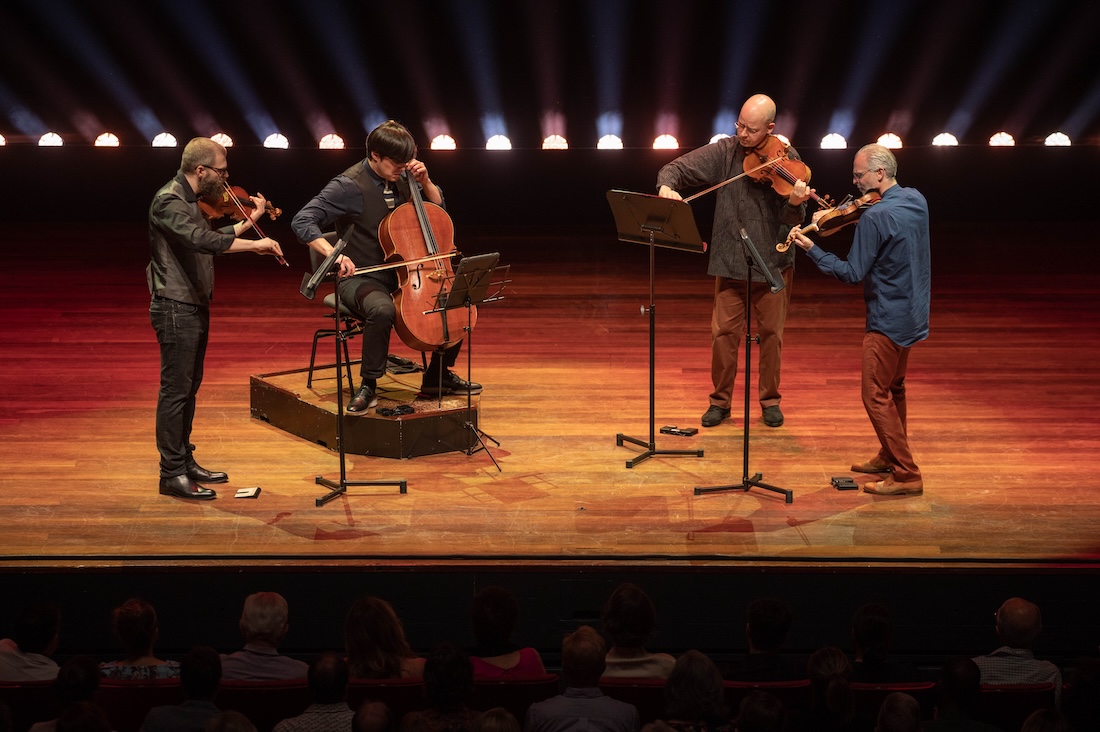
Brooklyn Rider
The concert opened firmly on the EARTH: violinist Colin Jacobsen’s A Short While To Be Here. The only work in the program composed by a member of the ensemble, this was derived from a suite of American folk songs compiled and transcribed in the 1940s and 1950s by renowned musicologist Ruth Crawford Seeger.
Led by the composer, this jolly opening combined the warmth and earthiness of classic folk songs with an undercurrent of modernist experimentation. Playfully, it veered from rustic jigs and country reels to softly sliding string abstractions—spare notes juxtaposed across the four instruments. At times, they mimicked almost perfectly the sound of a piano—no mean feat on stringed instruments. Thanks to cellist Michael Nicolas’ judicious jumps from plucked to bowed notes, the music sometimes felt more like a folk-rock band than a classical quartet, exemplifying the ensemble’s versatility.
At the end of this long piece, Johnny Gandelsman replaced Jacobsen on first violin, and Nicolas Cords took to the microphone.
It’s rare in classical concerts for the musicians to address the audience directly, another indication of Brooklyn Rider’s crossover character. Warmly, Cords introduced the members of the ensemble and explained how each piece related to the overarching theme. This was both useful and necessary, as the theme was central to the concert’s impact, and there was no hard copy program, only an online version.
Reviewed later, this online summary captures the essence of the theme.
The 4 Elements is a musical call to action on the future of our planet, celebrating Earth’s wondrous mysteries while highlighting the destructive forces of climate change.
Colin Jacobsen elaborated on this.
Even in the most abstract music, there is a connection to the world around us—when we play a piece over time, it always 'sounds different’ based on things going on in the world, the zeitgeist. Hopefully, this is an opportunity to experience a truth that speaks to the moment we are in and also a more timeless kind of truth.
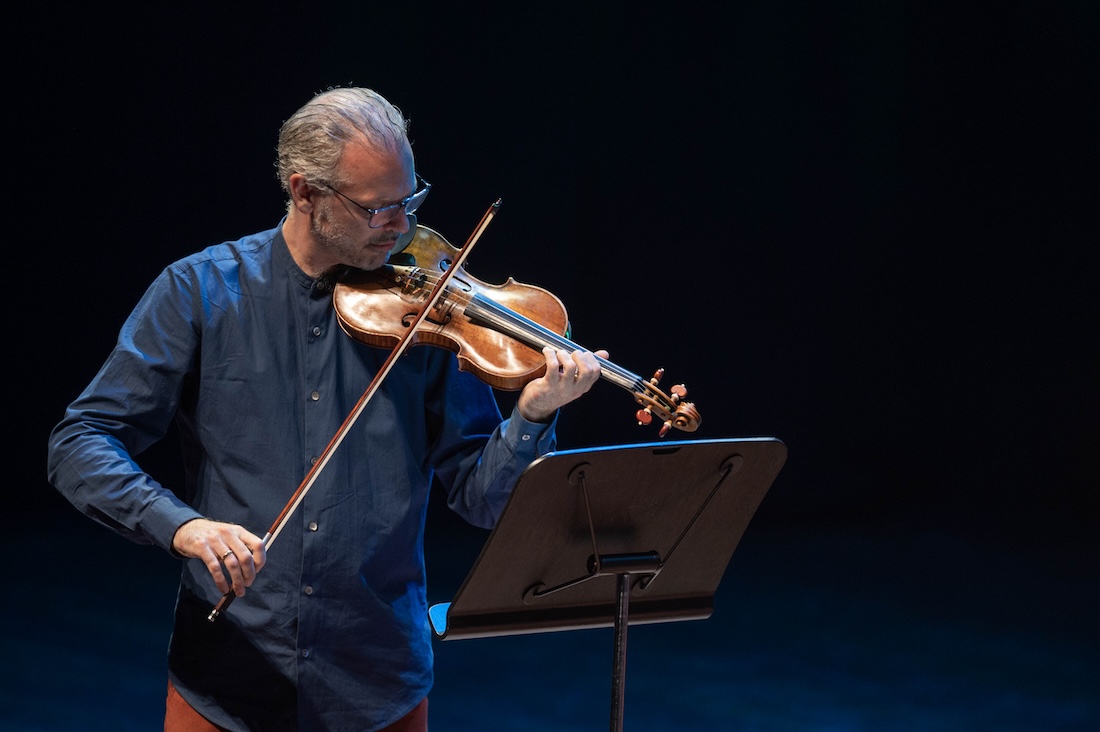
Brooklyn Rider
The second piece on the program was Akshaya Avril Tucker’s Hollow Flame, FIRE. Newly commissioned by the ensemble, the American Tucker, not yet thirty, was the youngest and only female composer included in the program. Her dynamic work was created in response to the recent Californian bushfires.
It began quietly with a sequence of high, air-filled notes, the first sparks, then built in intensity through a buzzing of violins. Five minutes in, the fire was raging, the buzzing frenetic like an angry swarm of bees. But then it began to quieten down. A slower, bowed section introduced a deep elegiac quality that captured the human emotion at the heart of the tragedy before finishing where it began with those air-filled notes.
On the next piece, Henri Dutilleux’s Ainsi La Nuit (So the Night), AIR, the ensemble crossed the Atlantic to France and went back in time to the mid-1970s.
Hailed as an ‘ephemeral and atmospheric masterpiece’, this took us back to the realms of high modernism. There was a bleakness and disharmony that we now associate with the era before The Beatles unintentionally reinfused classical music with a shot of optimism and shepherded it back into more harmonious realms (it took a while to catch on). Even so, the Dutilleaux was powerful and spectacular. The highlight was a series of rapid, coordinated ascents up all four sets of strings, intercut with slow, syncopated falls. It was one of the concert’s many virtuoso moments.
The final work in the first part was another new commission, Aere senza stelle, by Portuguese composer Andreia Pinto Correia. Again AIR, this was inspired by the dust storms from the Sahara desert that cross the straights of Gibraltar to sweep through the Iberian peninsula.
Another challenging piece, the ensemble pushed their instruments into the upper reaches, the squeaky and spooky part. With long discordant passages and ghostly counterpointing, in turn, they moved from pizzicato underpinning to layered bowing that mimicked the devastation wrought by the dust and wind. The piece ended with their four bows bouncing gently on the strings.
As the program so beautifully put it:
Pinto Correia’s work, inspired by historical and scientific research, reimagines the string quartet as a sonic cloud that carries an infinite stream of particles from the desert to other parts of the world.
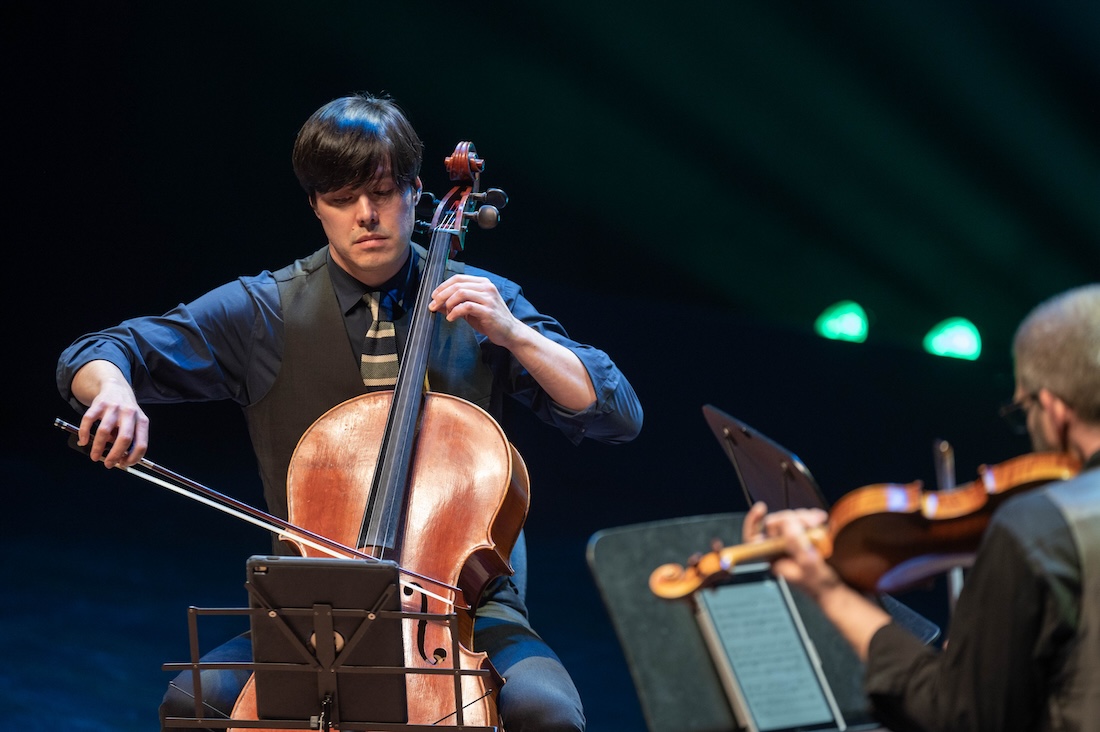
Brooklyn Rider
Brooklyn Rider was formed in 2005. The name was inspired by the European art group Der Blaue Reiter (The Blue Rider). The artists associated with that group, Wassily Kandinsky and Franz Marc being prominent among them, were important pioneers in twentieth-century art. Their eclectic almanac, published in 1912, spanned diverse artistic traditions, media, and aesthetics, served as an artistic testament to their time, and set a vision for the future. A century later, Brooklyn Rider embrace this same creative spirit.
The second half of the concert was devoted to major works from the modernist canon: Dmitri Shostakovich’s Eighth String Quartet (1960) and Osvaldo Golijov’s Tenebrae (2003).
Shostakovich composed his String Quartet #8 in Dresden in response to the firebombing by the Allies at the end of World War II. Fifteen years later, this once-most beautiful of European cities was still a ruin. The piece was officially dedicated to ‘the victims of fascism and the war’ but the hidden meaning embraces the victims of all totalitarian regimes, the Soviets included, while Shostakovich, a reluctant communist, originally dedicated it to himself—he was close to suicide at the time. The Soviets chose the official dedication.
In five movements over twenty minutes, this monumental work reaches deep into the tortured soul of humankind and recreates the utter devastation of the inhuman cruelty of war. A haunting and harrowing work, ironically, Brooklyn Rider first performed it in a concert in Sweden on February 24, 2022, the day Putin invaded Ukraine. Sixty years later, it is still as relevant as ever. In terms of the overarching theme, this was FIRE.
To finish on a more optimistic note and lift the audience’s collective spirits, the quartet closed the show with the gentle and hauntingly beautiful Tenebrae by Argentine Osvaldo Golijov. In two movements, this soft and reflective eight-minute work embodied the spirit of hope and the soothing calm of WATER. Uplifting and life-affirming, it was a compassionate place to leave the audience.
In terms of the complete classical concert experience—the integration of theme and delivery, the complexity and diversity of the program, and the sheer virtuosity of the playing—The 4 Elements was exemplary. An utterly extraordinary concert, it was a pity that, of the four festival performances at the Concert Hall, this had the smallest audience. But those who saw it were completely blown away and showed their appreciation with great enthusiasm.
This is the first time Brooklyn Rider has toured Australia—their 'maiden voyage, as Cords wittily put it. Let’s hope they return. From here, they travel to Bonn, where they will be artist in residence at the Beethovenfest. While in Europe, they will also perform concerts in England, Belgium, Germany, and other countries.
IAN LILBURNE

